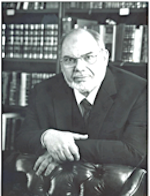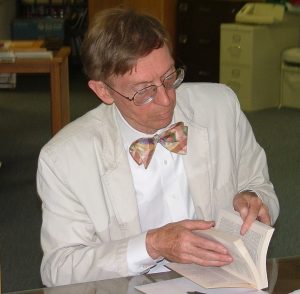9-11 impacted countless lives and institutions throughout DC and the MIid-Atlantic. Among these were graduate theological schools that educate pastors, priests, and yes at the time imams. The Washington Theological Consortium was (and still is) a community of such schools, and the impact of 9-11 has been far reaching.
Churches, synagogues, and mosques filled up after 9-11, as people sought direction, answers, or solace. Pastors, priests, rabbis and imams speak to this day of the hunger for spiritual direction among the general population. Some found help in religion, many did not, which still haunts faith leaders–what more could have been done?
Losses of military and civilians workers in the air attack on the Pentagon were far reaching, impacting families, co-workers, houses of faith and the public psyche. Local theological educators were invited to the White House to consult with President Bush about what to do about religious relations in the U.S., and Muslims in particular. Bush believed that Islam was not the enemy, but that radical elements that misused the religion, like Al-Qaeda, were. Religious leaders throughout the region affirmed that view, and pledged to strengthen relationships with their Muslim neighbors.
This is where the Consortium stepped up. With the support of its Catholic, Protestant, Evangelical, and Historic Black Divinity school members, the Consortium deepened relationships with the first Islamic graduate school in the nation–the Graduate School of Islamic and Social Sciences (GSISS) in Leesburg, VA. Founded by Dr. Taha Al-Alwani (left), a leading scholar in the reform of Islamic thought, this school educated the first Muslim chaplains for the U.S. Marines, generated research and publishing around the inculturation of Islam in Western societies, and educated many Muslim imams and lay leaders for the coming generation.
Soon, GSISS expressed interest in joining the Washington Consortium of Christian theological schools, and with the guidance of Dean Ahmed Al-Alwani, this took place in 2004. That partnership helped transform Christian-Muslim theological education throughout the region. A chair for Muslim-Christian studies was established in the Consortium, filled by Dr. Richard Jones (left), professor emeritus from Virginia Theological Seminary. Under his leadership, Consortium schools experienced classes in Islam, the Quran, Muslim-Christian dialogue, and interfaith leadership. Schools like Catholic University of America and Howard University School of Divinity moved to hire full-time faculty in Islamic studies. A series of annual lectures in honor of Sheik Taha Al-Alwani, dedicated to Muslim-Christian dialogue, was begun and they continue to the present.
In short, 9-11 spawned a host of educational initiatives that shaped future generations of pastors, priests, and imams who have come to respect differences, and link arms in shared causes. Out of the ashes of horrific loss and wrongdoing, God’s phoenix still rises.


